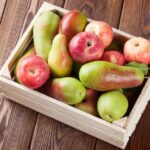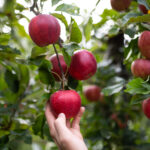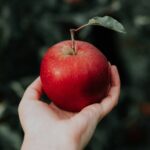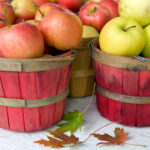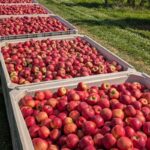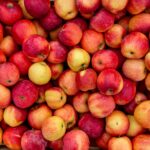U.S.: WSU seeks commercial partners for new apple variety

From its beginnings with a cross between Honeycrisp and Enterprise apples in 1997, a Washington State University (WSU) project to develop a crisp and long-lasting variety is getting closer to the business end. Through an announcement of opportunity (AOO), the university is looking for partners to commercialize the "WA 38", which is yet to be given a trademark name. Breeder Kate Evans tells www.freshfruitportal.com more about this cultivar's benefits.
Evans says that while there are many apple varieties already on the market, the WA 38 has strong potential for finding a market space due to several benefits in terms of taste, appearance and postharvest quality. 
"One thing that the apple industry here is really interested in is having apples that will store for the best part of a year or more, and will retain the quality in store so that we can sell and ship apples for 12 months," says Evans, who took over the program from Bruce Barrett in 2008.
"It definitely has that crispness that a Honeycrisp has. It retains that crispness once you've taken the first bite which is something that Honeycrisp quite often doesn't manage, and it stores very well.
"Warehouses and storage units have a lot of trouble to get Honeycrisp to store for more than a few months, so we've managed to combine the good texture of that apple but with storability as well, and it has a lot of similarities in appearance to Enterprise, its other parent."
She adds the apple's flesh is also non-browning, which is a positive characteristic from an appearance point of view for marketing purposes.
"There are GM apples out there at the moment that are non-browning apples, but this one does it naturally."
She says WSU placed its patent application for the WA 38 last year but there are still no commercial orchards dedicated to the cultivar.
"We're in the process of trying to find a group or company who would be interested in managing the commercialization process, to actually get it out there into grower orchards.
"At the moment the apple will be restricted to be grown in Washington only, but where it's managed from is different; it could be wider than that."
"We envisage that there'll be a time delay to give our Washington growers an advantage so it stays here in the state for a number of years exclusively."
Should the apple prove successful enough to warrant extra supply in different seasons, Evans says cultivation elsewhere in the world could be a possiblity.
Sensory evaluations showed the apple is less hard than Braeburn or Cripps Pink apples but harder than Fujis or Galas, and is crispier and juicier than all these varieties.
Tests showed high pack-outs which the WSU team attributed to WA 38's 90-100% red coloring, large size and absence of sunburn, russeting or bitter pit.
Photo: WSU
















